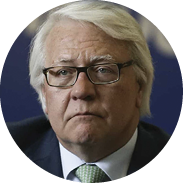Vasco Rato, University Teacher
The US presidential election in 2020 will take place on 3rd November. Biden and Trump are the presidential candidates in the country’s 59th presidential election.
American presidential elections invariably spawn a substantial amount of attention throughout much of the rest of the world. Since the end of World War II, when the United States was catapulted to a preeminent role in international affairs, the direction of the country’s foreign policy produced far-ranging consequences in other states. Obviously, the 2020 presidential election is no exception to this rule, particularly since the United States presently faces challenges more pressing than at any other time since the late 1940s.
Until quite recently, the existing domestic, bipartisan consensus on foreign policy meant that the United States’ overall grand strategy remained quite predictable. The existential threat posed by the Soviet Union meant that the preservation of US military alliances and broad international commitments was simply not compatible with radical policy shifts. Differences in presidential leadership styles and domestic agendas were a constant and, at times, profound. Yet, the general outlines of America’s foreign policy orientation were molded by the structural exigencies of the Cold War.
In the aftermath of the breakup of the Soviet Union, and the consolidation of Deng Xiaoping’s “reform and opening”, a new bipartisan consensus took form during the Bill Clinton presidency. From that point forward, the US committed itself to the enlargement of the liberal order through the promotion of free markets and political democracy. As a corollary, China was to be transformed into a responsible stakeholder by way of its accession to the World Trade Organization and full incorporation into the world economy. The interdependence generated by global trade resting upon intertwined supply chains would, so the foreign policy consensus maintained, nudge Beijing towards further reform and political democratization. The result would be a more pacific international system and the preservation of the American-led international liberal order.
However, as Democrats and Republicans pursued increasingly divergent policy agendas both at home and abroad, the bipartisan consensus frayed and the US witnessed the onset of accentuated political polarization and partisan conflict. Yet, it would be erroneous to suggest that Trump is the cause of the country’s radicalized politics. Indeed, Trump’s defeat of Hillary Clinton in 2016 was itself a consequence of the tribalization of US politics generated by the effects wrought by globalization. Large sectors of American society experienced globalization in the form of deindustrialization, as joblessness and a hollowing out of communities. Not unexpectedly, the result was a backlash against free trade and, in particular, Chinese trade practices. At the same time, the dominance of social media and the concomitant erosion of traditional media influence radicalized political discourse further and widened the gap between the country’s two main parties. All of these factors led to the rejection of the country’s political and cultural elites. Donald Trump’s populism merely mobilized sectors of the electorate that had reached the conclusion that the “swamp”, the establishment, had failed the average, blue-collar American.
Donald Trump’s 2016 victory overturned the foreign policy consensus and set the country on a new course in international affairs. It is, however, crucial to note that Trump did not cause the shift; rather, he responded to the structural changes occurring in the international system. During the 2016 campaign, the Republican candidate was clear in suggesting that the foreign policy establishment had failed the country. The United States’ role in the world had, therefore, to undergo profound modification so as to become more responsive to the interests and concerns of the American heartland. America’s working class, Hillary Clinton’s deplorables, were the primary losers of the globalization process and of China’s emergence as a great power. As a logical result, it was necessary to fashion a new policy placing the US national interest at the center of the country’s priorities. To revert US decline, the “America First” policy agenda aimed to refashion the relationship with China and, also, with Washington’s traditional allies, including Europe.
In 2020, the international system is in profound mutation as the liberal order confronts overt challenge by Russia and China, two revisionist powers determined to upend American preeminence. Managing the new international correlation of power, and developing a grand strategy capable of assuring the maintenance of US national interests, will be the fundamental task of the next president. Still, and irrespective of the winner of the November 2020 elections, Washington cannot return to the broad policy preferences of past decades. Those solutions are no longer workable. In broad terms, Trump’s foreign policy, particularly regarding trade and China, will be continued by the next president. The European view positing a “return to normality” when Trump abandons the White House is therefore not tenable. Populism, now prevalent on both the American left and right, is a response to perceived policy failing and the uncertainties of the country’s role in the world. In short, there is no going back to the broad consensus that underpinned American politics, domestic and external, during the latter half of the twentieth century. Trump is not an anomaly; he is the sign of things to come.







